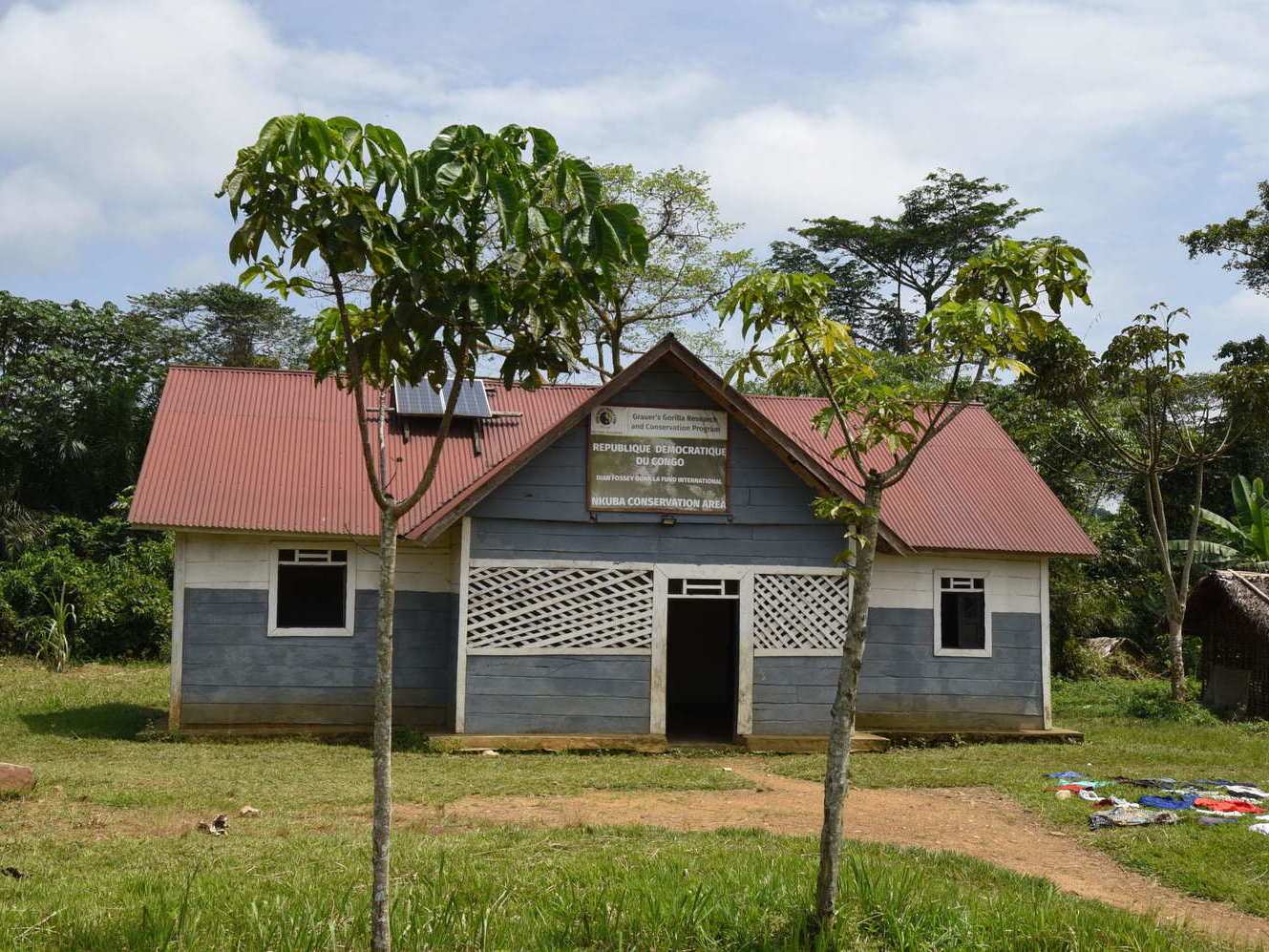The Fossey Fund is best known for our work to bring wild gorillas back from the brink of extinction. But many Fossey Fund initiatives go beyond gorillas, focusing instead on the human communities that live near wild gorilla habitat in Rwanda and the Democratic Republic of the Congo. We know that helping these communities, through livelihood, food and water security, and education initiatives, helps protect the gorillas and keep their biodiverse habitat intact.
In 2017, our Conservation Education Program began working with nature clubs in primary schools near Rwanda’s Volcanoes National Park (VNP). Each year since, we’ve trained teachers to lead the clubs and to support students as they design and implement projects that benefit their schools and communities while protecting the environment.

“These nature clubs are a critical part of our community outreach strategy,” says Felix Ndagijimana, the director of the Fossey Fund’s Rwanda programs and Karisoke Research Center. “Through these clubs we provide conservation education, not just to students and teachers, but to the community at large. They also play a key role in our critical food security programs and fit with our mission to help humans and save gorillas.”
We currently work with clubs at 17 different primary schools near the VNP. The students in these clubs have successfully implemented a variety of projects at their schools, including animal husbandry and school vegetable gardens. In the past three years, several of these student-run clubs began to dream big, focusing on nurseries to produce fruit trees, bamboo and other local tree species that will help feed their communities for years to come. The tree nurseries are increasing agricultural productivity, providing alternative sources of income and improving conservation knowledge within the communities.

Nature club members have planted more than 35,000 fruit and agroforestry trees thus far. In 2020, 14,000 of these were mature enough to be distributed to more than 5,000 families. Of these, 9,000 were food bearing trees, primarily avocados, while the other 5,000 were agroforestry trees to be used for things like firewood or lumber. Club members also delivered 300 hagenia trees to the nursery at our new Ellen DeGeneres Campus, where they will be used in reforestation projects.
Vestine Nyirandikubwimana, a mother of three nature club participants, received trees from Centre Scolaire Nyamurimirwa in 2018. “I am very happy to have bean stakes and firewood from these trees, which were planted by my children,” says Nyirandikubwimana. “I learned from my children how important it is to conserve the park. For me, there is no need to go into the park for cutting trees.”
These tree planting projects do more than provide alternative sources of food. During the rainy season, water rushes down steep mountain slopes, causing floods and soil erosion. Planting trees promotes soil conservation, forest landscape restoration and soil productivity; trees also absorb carbon dioxide, slowing the rate of climate change across the globe. Additionally, nature club nurseries support an initiative of the Rwandan government that aims to make agroforestry and fruit trees available to every family in Rwanda. And these projects change student and parent attitudes about gorilla protection in the VNP.
“Club projects can target three beneficiaries: schools, communities around the schools and the environment,” says Maurice Ngiramahoro, the Fossey Fund’s conservation education manager. “Nature club tree nurseries benefit all three targets. It is wonderful to see communities benefitting from the projects implemented by their students. And the nurseries also serve to the protect and conserve gorillas and the biodiverse Volcanoes National Park.”






